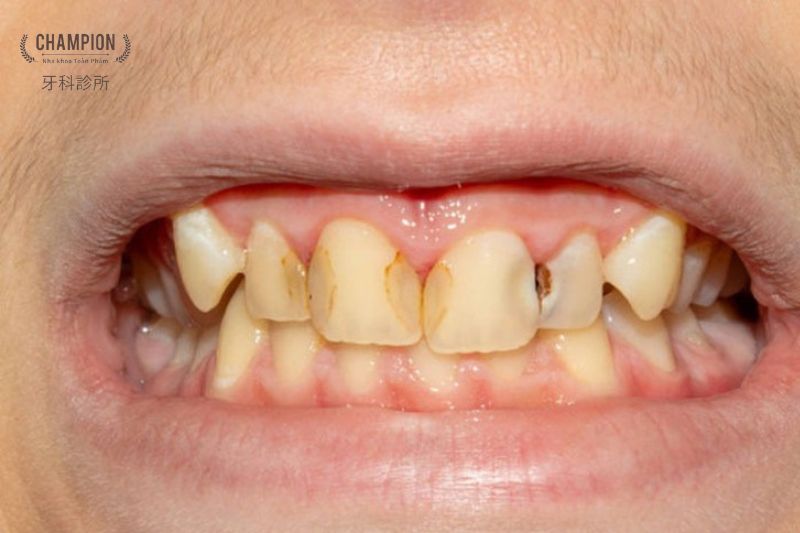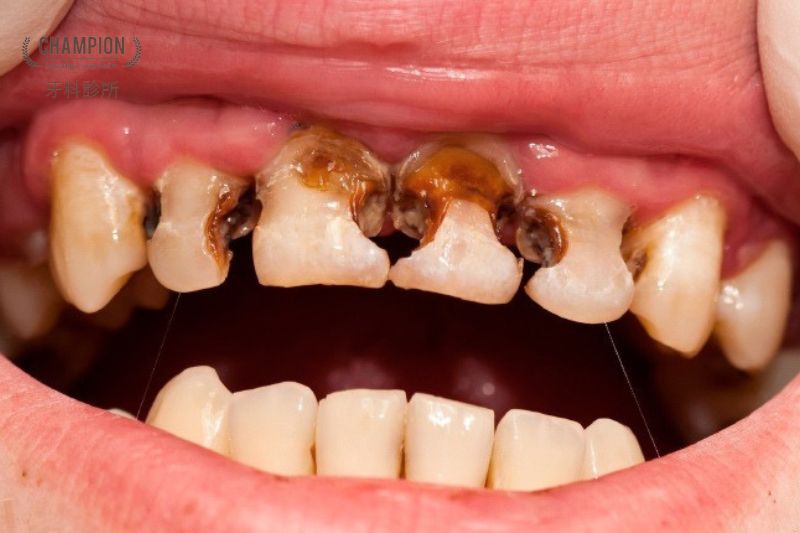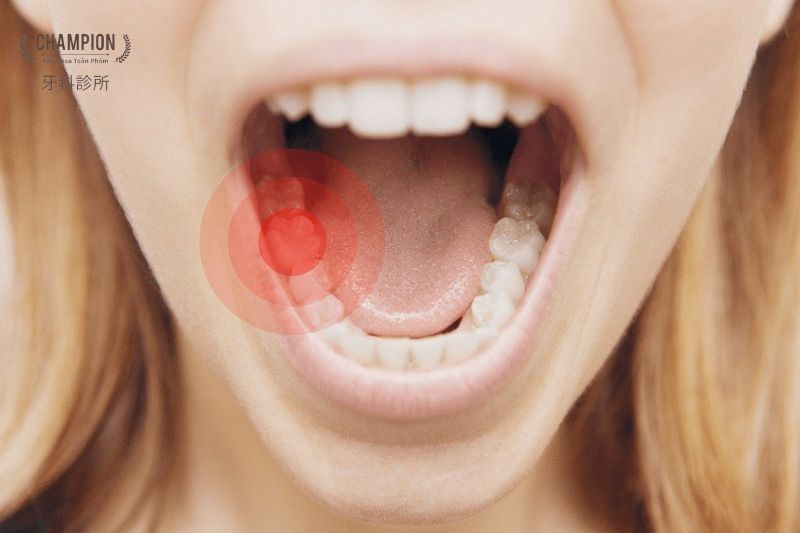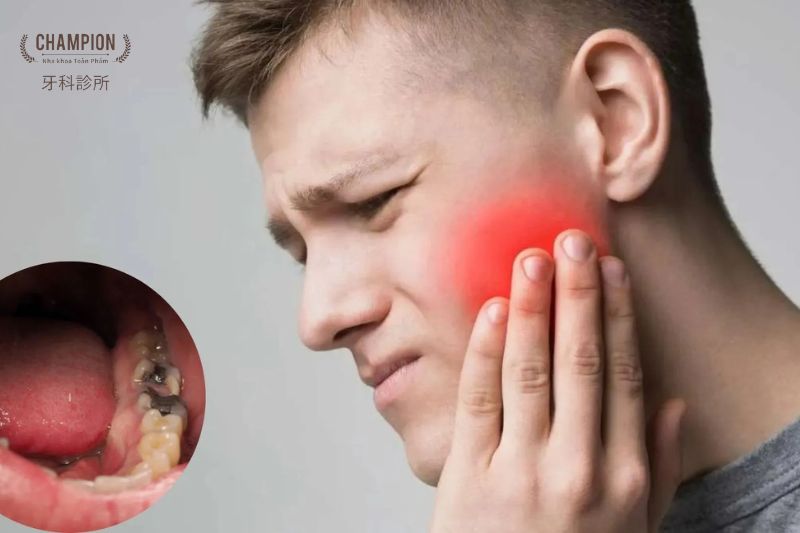Tooth decay is a common condition within the oral health system that many people around the world have to deal with. It is a serious dental health issue that can cause various forms of pain and hinder one's ability to eat and speak. What is tooth decay, and why does it occur? Let's explore this in the following article with Champion Dental Clinic.
What is tooth decay?
Tooth decay is a condition in which tooth enamel (the outer protective layer of the tooth) is damaged by bacteria and acids. Bacteria in the mouth, primarily a type called Streptococcus mutans, produce acids from the food and sugars in the mouth after eating. These acids act on the tooth enamel, causing mineral loss and gradual tooth damage, resulting in the formation of cavities.
Tooth decay usually begins as small cavities, but if left untreated, they can become larger and spread into the hard tissue inside the tooth. As a result, you may see black cavities on the tooth's surface, but this is just the visible aspect of the harmful effects of tooth decay.

Common Types of Tooth Decay
There are various types of tooth decay, depending on their location, severity, and underlying causes. Here are details about common types of tooth decay:
Pit and Fissure Decay
Pit and fissure decay is the most common type of tooth decay, often found in children and teenagers. It typically occurs on the chewing surfaces of molars or between the crevices of teeth.
Root Decay
Root decay is often seen in older adults when the gumline recedes, exposing the tooth's root. The cause of root decay is the accumulation of bacteria on the exposed root surface, leading to plaque buildup and gum inflammation, which can result in gum recession and root exposure.
Smooth Surface Decay
Smooth surface decay can affect individuals of all ages but is more common in adults. It occurs on the flat surfaces of teeth, typically without pits or fissures.
Secondary Decay
Secondary decay occurs around areas where fillings or crowns have been placed. This condition arises due to the tendency of plaque and bacteria to accumulate in these regions.

Common Causes of Tooth Decay
The primary cause of tooth decay is bacteria in the mouth. These bacteria typically appear when food residues remain on the teeth after eating. When bacteria come into contact with sugars in the food, they produce acid. This acid then erodes the tooth enamel, the protective outer layer of the tooth.
Furthermore, there are other factors that can increase the risk of developing tooth decay, including:
- Consuming sugary foods and beverages
- Drinking carbonated soft drinks
- Irregular tooth brushing
- Failure to use dental floss
- Grinding teeth
- Lack of calcium and vitamin D

>> See more: The most effective tips for treating toothaches in children
Signs and Symptoms of Tooth Decay
The signs and symptoms of tooth decay can vary depending on the severity of the condition. In the early stages, tooth decay may not present any noticeable symptoms. However, as the disease progresses, you may experience the following symptoms:
- Toothache: Pain is one of the most prominent symptoms of tooth decay. The pain can be persistent or occur when consuming hot, cold, or sweet foods.
- Sensitivity to Food and Drinks: Teeth affected by decay tend to become sensitive to hot, cold, and sweet food and beverages.
- Change in Color: Tooth decay can lead to a change in the color of the affected tooth, often becoming brown or black.
- Bad Breath: If tooth decay has progressed to an advanced stage, it can cause unpleasant bad breath.

Most Effective Tooth Decay Prevention
The best way to prevent tooth decay is to maintain clean and healthy teeth. Here are some preventive measures you can take:
- Brush your teeth at least twice a day with fluoride toothpaste.
- Use dental floss at least once a day to remove food particles and plaque between your teeth.
- Visit the dentist and dental hygienist regularly, typically every six months.
- Consume foods and drinks that are good for your teeth, such as fruits, vegetables, and dairy products.
- Limit the consumption of sugary foods and beverages.
We hope the information provided by Champion Dental's article has helped you understand what tooth decay is. Tooth decay can become a serious health issue if not treated promptly. By maintaining proper oral care and scheduling regular check-ups with a dentist, you can reduce the risk of tooth decay and maintain a healthy smile.
Vietnamese & English: (028) 5411-2295
中文: (028) 5411-2297 172 Nguyen Luong Bang, Tan Phu Ward, District 7, Ho Chi Minh City.
Fanpage: Champion Dental Clinic 牙科診所
Zalo: Champion Dental Clinic
Youtube: Champion Dental Clinic 牙科診所
 Champion Dental Clinic
Champion Dental Clinic



